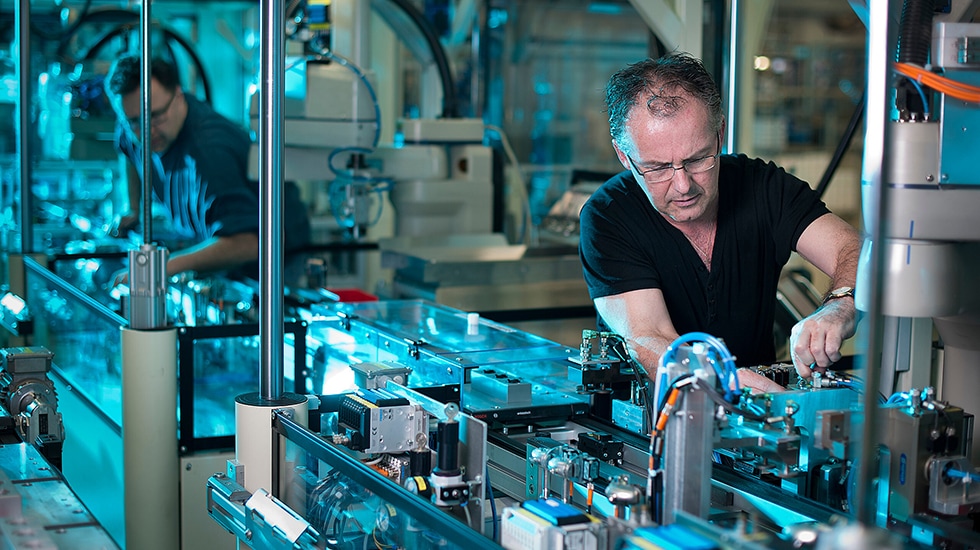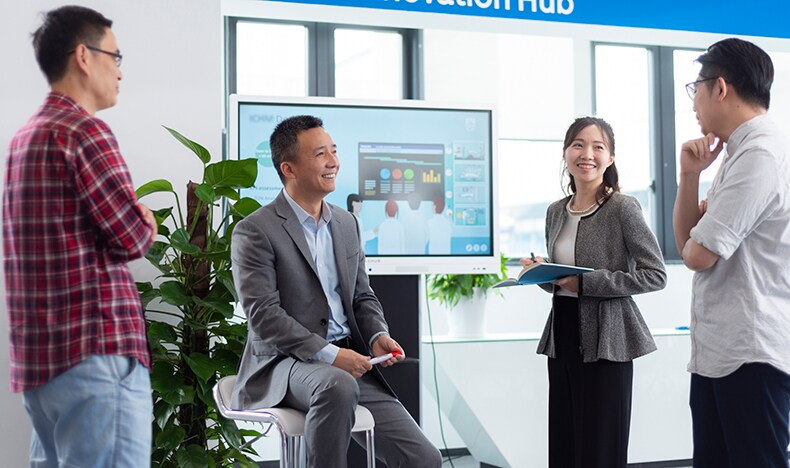Philips Supplier Sustainability approach secures finalist position for Philips in Fortune’s 2024 ‘Change the World’ rankings
Philips achieves milestone recognition from Fortune for its ongoing commitment to improving the health of people and the planet through supply-chain sustainability innovation
Sep 26, 2024 | 5 minute read
On September 25, 2024, Fortune magazine published its Fortune ‘Change the World’ rankings, with Philips’ Supplier Sustainability approach positioning Philips number 26 on the list. Gaining finalist status in Fortune’s 2024 list marks a milestone recognition of Philips’ commitment to drive Environmental, Social, and Governance (ESG) priorities as well as its purpose of improving people’s health and well-being through meaningful innovation. Philips’ Supplier Sustainability approach was evaluated by Fortune’s judging panel on its positive social impact in terms of its focus on a pressing societal problem, the scale, reach and durability of its impact, and its measurable results, degree of innovation, and fit with the company's broader corporate strategy.

A collaborative approach
Focused on improving its suppliers’ sustainability performance, advancing human rights, responsibly sourcing raw materials, and reducing the environmental footprint of its supply base, Philips’ Supplier Sustainability approach is part of Philips’ wider focus on driving sustainable and equitable healthcare together with industry partners, suppliers, and customers across the value chain. After analyzing a supplier’s ESG performance and identifying areas of improvement, Philips works with the supplier in a collaborative and structured way to develop a plan for achieving agreed environmental impact and social responsibility goals. As part of the approach, Philips uses a dedicated artificial intelligence (AI) based tool, co-developed by Philips and Eindhoven University of Technology (Eindhoven, the Netherlands), that identifies the principal factors suppliers should be aware of to improve their social and environmental performance.
The Fortune ‘Change the World’ recognition underscores the importance and value of our work with supply chain partners. The results illustrate our continued focus on embedding our ESG priorities in our global business practices.
“Actively helping our suppliers to set and advance sustainability goals is proving to have a real ripple-effect,” said Marnix van Ginneken, Executive Vice President and Chief ESG & Legal Officer at Philips. “The Fortune ‘Change the World’ recognition underscores the importance and value of our work with supply chain partners. The results illustrate our continued focus on embedding our ESG priorities in our global business practices."
Reducing emissions throughout the value chain
In addition to reducing its Scope 1 (operations) and Scope 2 (energy sourcing) greenhouse gas emissions, reducing Scope 3 emissions (emissions that occur in the value chain outside the company’s direct control) is key to reducing Philips’ overall environmental footprint.
In healthcare, it is estimated that 71% of emissions are derived from the supply chain through the production, transport, and disposal of goods and services [1]. Philips therefore set itself the target of having at least 50% of the suppliers in its supply chain (based on spend) committed to science-based targets for CO₂ emission reduction by 2025. Reducing these Scope 3 supply chain emissions is expected to have a seven times greater impact than simply lowering CO₂ emissions from the company’s own operations.
Integral to its Supplier Sustainability approach, Philips’ Supplier Sustainability Performance program leverages the tools, expertise, and experience Philips has gained in driving environmental sustainability across its own operations to help its suppliers do the same. Scope 3 emissions reduction in the supply chain is vitally important, because the responsible sourcing of goods and services has a positive knock-on effect within the entire healthcare value chain, ultimately helping to reduce the environmental footprint of Philips’ customers.
Since its inception in 2016, Philips’ Supplier Sustainability Performance program has transformed the way the company engages with suppliers regarding sustainability, going beyond an audit approach to drive continual improvement in a collaborative and structured way across a supplier’s full operations. Philips then actively helps its suppliers to meet their targets and audit their results by providing hands-on assistance, not only in the form of expertise but also in the form of advanced AI-based data analytics.
By the end of 2023, Philips achieved 46% commitment to science-based targets from its supplier base (based on spend) putting the company firmly on-track to meeting its 2025 target of 50%. Through its partnership with CDP Supply Chain, the company invites its suppliers to disclose their environmental performance and carbon intensity. The response rate in 2023 was 93%, with 500 of the company’s biggest suppliers engaged in the program reporting a total of 14 million metric tons of CO2 savings from improvement projects undertaken during the year.

Protecting human rights in the supply chain
As a responsible business, Philips is committed to securing a strong, stable, and sustainable supply chain – essential to the company’s aim of improving people’s health and well-being in support of United Nations Sustainable Development Goal (SDG) 3 ‘Ensure Healthy Lives and Promote Well-being for all at all Ages’. Philips is also focused on driving tangible progress to improve the lives of workers in its supply chain by identifying and mitigating potentially adverse human rights impacts. The company’s Supplier Sustainability Performance program has already resulted in improved labor conditions and reduced risk of serious injury, in addition to lowering the negative environmental impact of Philips’ suppliers. With more than 230 tier 1 and tier 2 suppliers participating in 2023, the program positively impacted approximately 723,000 employees in the company’s supply chain – almost three quarters the way to meeting Philips’ target of improving the lives of one million supply chain workers by 2025. Advancing human rights throughout the supply chain, right back to the responsible sourcing of raw materials, is a key element in Philips’ Supplier Sustainability approach.
Along with its Annual Report, Philips shares the impact of supplier sustainability in its annual Human Rights Report. The company’s 2023 Human Rights Report provides information about Philips’ zero-tolerance stance to human rights abuses, together with related efforts to advance social and environmental responsibility and business ethics.
Spreading the word
To extend the reach of its Supplier Sustainability Performance approach beyond its own supply chain, Philips collaborates with industry peers to expand access to its supplier sustainability tools and methodologies, resulting in new recognized global standards. Philips is also an active member of multiple human and environmental impact initiatives contributing to global efforts to improve health access and equity, reduce greenhouse gas emissions and scale circular practices, with the aim of creating a healthier and more sustainable world. By improving the lives of workers in its own supply chain and encouraging other organizations to do the same, it hopes to contribute to a fairer and more equitable world.
Sources [1] Health Care’s Climate Footprint ‘How the Health Sector Contributes to the Global Climate Crisis and Opportunities for Action’
pdf https://global.noharm.org/media/4370/download?inline=1
Media contacts
You are now exiting the Philips United States (US) site and entering the Philips global site. This content is intended for a global audience. It may not apply to the US and should not be interpreted as meeting US standards, executive orders or regulations.
Continue








